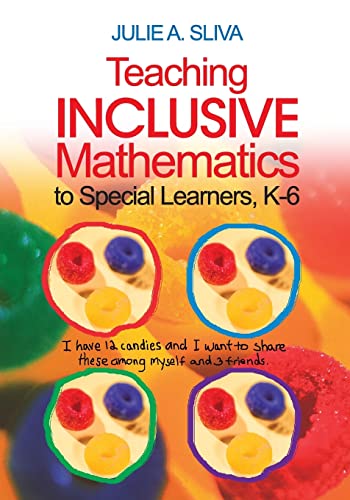Teaching Inclusive Mathematics to Special Learners, K-6
Julie Sliva Spitzer brings a rich background in mathematics, technology, and special education. As an associate professor of mathematics education at San Jose State University, she teaches methods of mathematics instruction to aspiring educators and supervises their field experiences. Julie continues to enjoy inservice work with teachers Grades K–12. Julie’s research interests include studying teacher and student attitudes toward teaching and learning mathematics, and best practices for teaching mathematics to learners with special needs. She is a frequent presenter at the National Council of Teachers of Mathematics Annual Meetings, the California Mathematics Annual Conference, and the International Group for the Psychology of Mathematics Education, North American Chapter. ... Read more Read less
The book is easy to read and captures one's attention. It is dealing with a topic that is extremely important in today's education community' - Larry Osthus, Mathematics Consultant , Heartland Area Education Agency 11, Iowa The number of special needs students in regular classrooms keeps rising. At the same time as more of these special needs students are being included, mathematics requirements are being increased. NCTM (National Council of Teachers of Mathematics) standards emphasize development of algebraic understanding in early elementary grades. This book is designed to open windows of understanding, which will help teachers better recognize and compensate for the difficulties that special education students may encounter when learning mathematics. The author discusses general characteristics of learning disabled students as they relate to planning mathematics instruction. She also discusses instructional techniques and suggests modifications for facilitating these students' learning. Many of these techniques and strategies are designed to address specific difficulties or weaknesses; however, it must be emphasized that these techniques are useful across the classroom and may benefit all of the students, and particularly those who may not be diagnosed as learning disabled but do have difficulty in math. ... Read more Read less











